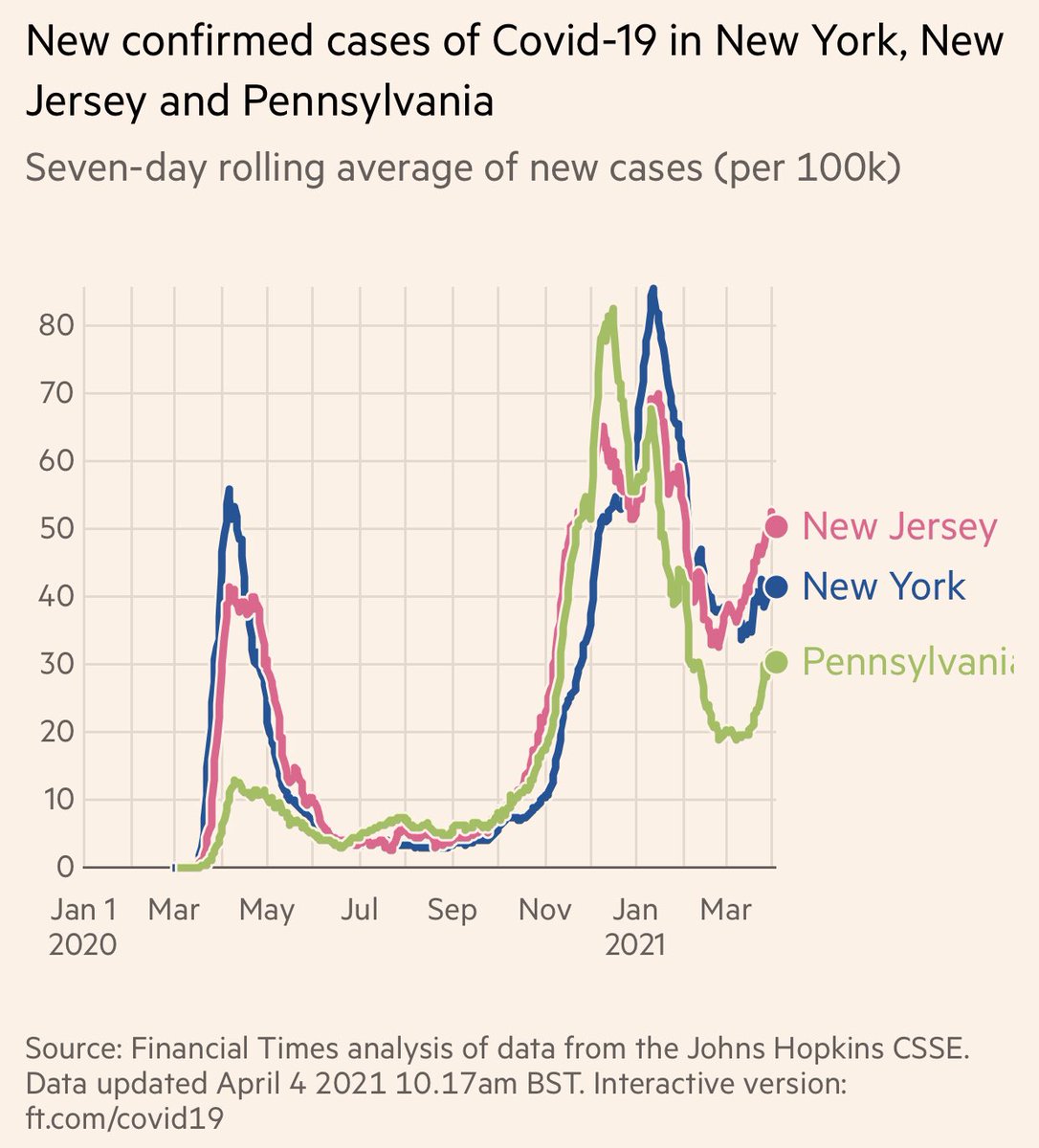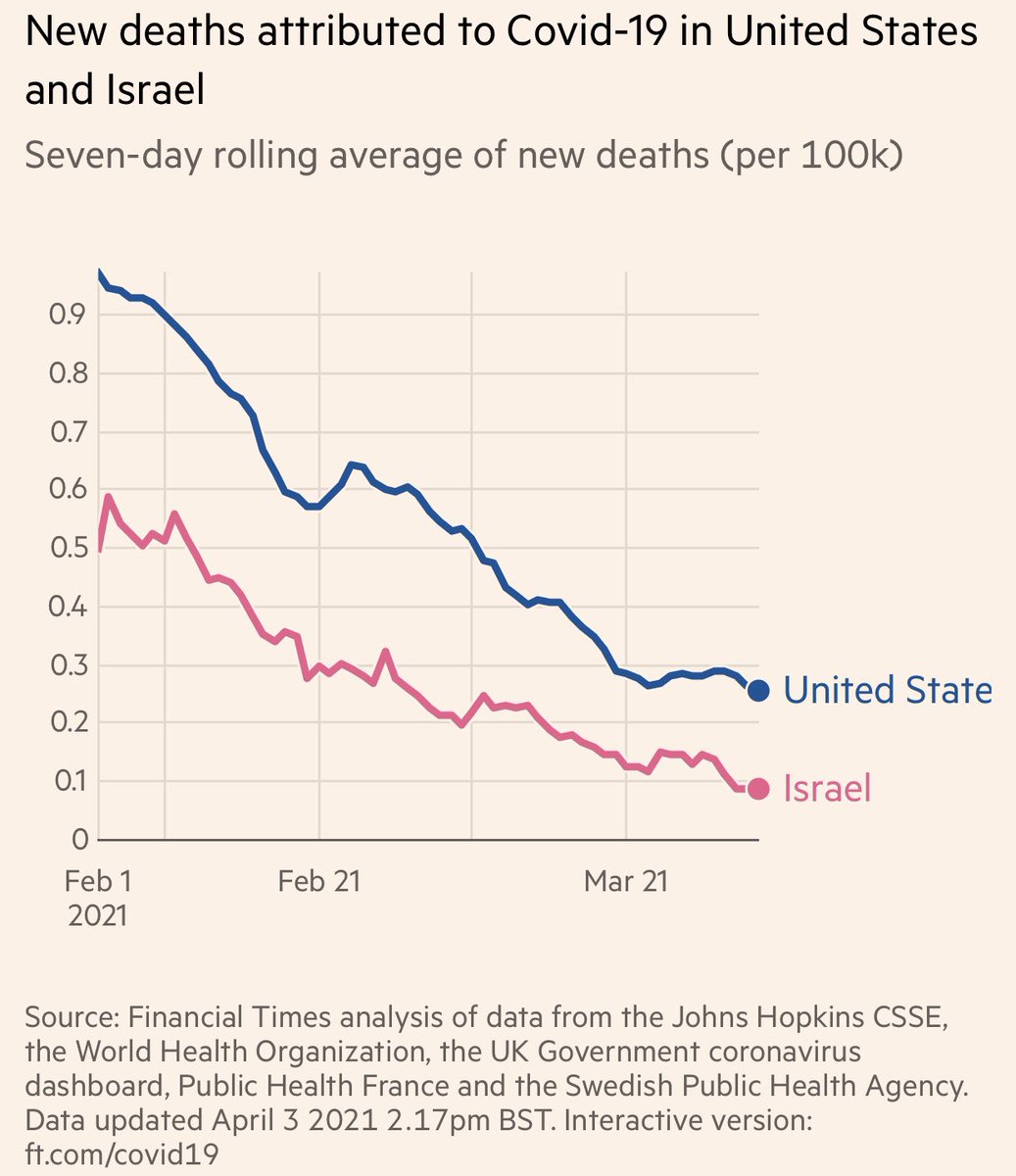
Mortality rate of symptomatic COVID when healthcare system was overwhelmed early on (as in Italy, Spain, Belgium, & parts of the US) was incredibly high. As we flattened the curve & learnt to treat, the rate reduced to 2-3%.
cf. Australia didn't get overwhelmed. @OurWorldInData
cf. Australia didn't get overwhelmed. @OurWorldInData

It is indeed remarkable how across the world the mortality rate of confirmed, presumably symptomatic, COVID has coalesced to around 2-3%. 

Although with improvements in treatment, mortality rates of symptomatic COVID may be lower that what we saw early last year in places that got overwhelmed, no country should be in a situation where the healthcare system is overwhelmed. That leads to much higher loss of life.
Vaccines, and precautions until everyone eligible has a chance to get vaccinated will help us get there, even with the rise of variants.
Related thread on infection fatality rate (IFR). The IFR for COVID in USA is ~0.5%.
https://twitter.com/VincentRK/status/1379902582940962819
• • •
Missing some Tweet in this thread? You can try to
force a refresh












